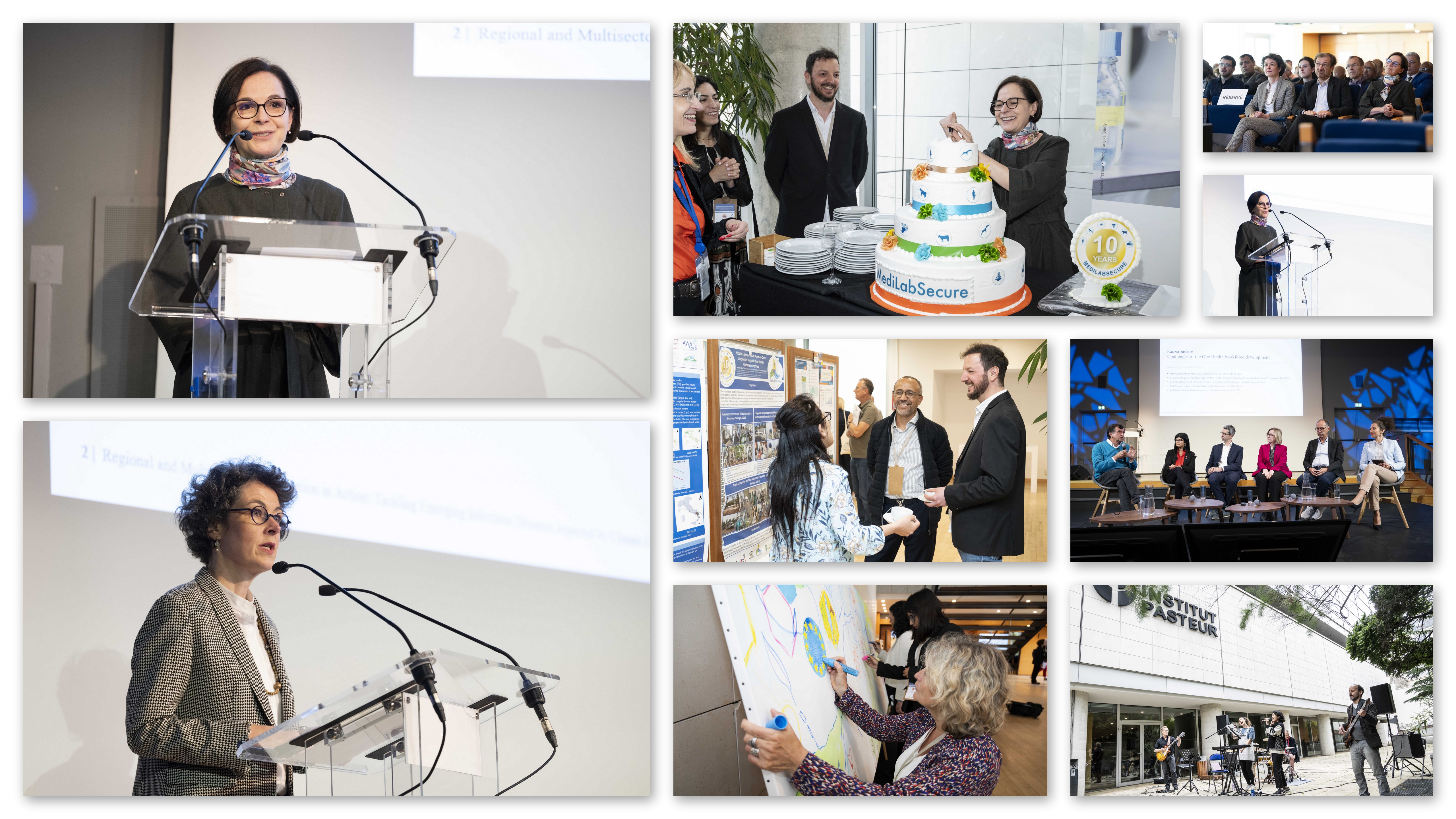
June 28, 2024
Bulletin interne de l'Institut Pasteur


Strengthening Multisectoral and Regional Cooperation to Mitigate Vector-Borne Diseases in the Mediterranean Region
Since the late 20th century, disruptions in the human-animal-environment interface have contributed to a rise in infectious diseases globally. The COVID-19 pandemic underscored the vulnerabilities of interconnected societies to sudden health crises. Concerns are mounting over vector-borne diseases, influenced by globalization and environmental changes, particularly affecting regions like the Mediterranean due to intense trade and migration flows. More than ever, epidemic preparedness is the cornerstone to prevent a pandemic from happening again.
To mitigate these emerging biological risks in countries around the Mediterranean, the European Commission under the initiative CBRN Centre of Excellence launched the MediLabSecure project in 2014. The project’s goal is the reinforcement of a multisectoral network of national reference laboratories and public health institutions in the Balkans, Black Sea, Middle East, North Africa and Sahel regions to strengthen their preparedness and response capacities in tackling vector-borne diseases.
Coordinated by the Operations Unit of the International Affairs of the Institut Pasteur, the project is jointly implemented by a consortium of European institutions, each recognized expert in their field:
• Agencia estatal Consejo Superior de Investigaciones Científicas through its Instituto Nacional de Investigación y Tecnología Agraria y Alimentaria, (INIA-CSIC, Spain) for animal virology;
• CIBU, Institut Pasteur (France) for human virology;
• French National Research Institute for Sustainable Development (IRD, France) for medical entomology;
• Istituto Superiore di Sanita (ISS, Italy) for public health;
• Istituto Zooprofilattico Sperimentale dell'Abruzzo e del Molise (IZS-Teramo, Italy) for veterinary services;
• The company AVIA-GIS (Belgium) for modelling and early warning expertise.
Since its inception, the MediLabSecure network has grown to include 22 countries and invited, in each targeted country, partner national organisations from 5 complementary sectors concerned by the vector borne diseases surveillance, to join forces. The network's main actions are capacity building, multisectoral networking, and advocating for integrated surveillance at the national level.
Celebrating a Decade of Progress: Enhancing Regional Cooperation Against Infectious Diseases impacted by Climate change in the Mediterranean Region
From June 11th to June 13th, the MediLabSecure project hosted a Global Meeting in France to celebrate its 10-year anniversary. The event featured a commemorative day at the Institut Pasteur with a conference titled “Regional and multisectoral cooperation in action: tackling emerging infectious diseases impacted by climate change in the Mediterranean region.” Opened by Prof. Yasmine Belkaid, President of the Institut Pasteur, Dr. Anne-Claire Amprou, French Ambassador for Global Health, and the European Commission, the conference highlighted impactful multisectoral projects improving public health amidst climate change.
Discussions focused on how collaborative regional projects can impact national health strategies and the challenges of developing a skilled One Health workforce, featuring insights from Prof. Arnaud Fontanet, Head of the Emerging Diseases Epidemiology Unit at Institut Pasteur. The closing speech was delivered by Dr. Odette Tomescu-Hatto, Executive Vice President of the International Affairs at Institut Pasteur. Participants engaged in dynamic roundtables, a networking poster session, and collaboratively created a fresco symbolizing MediLabSecure's achievements and goals. The day concluded with a festive cocktail dinner and concert with the group “Billie and the…What?”.

